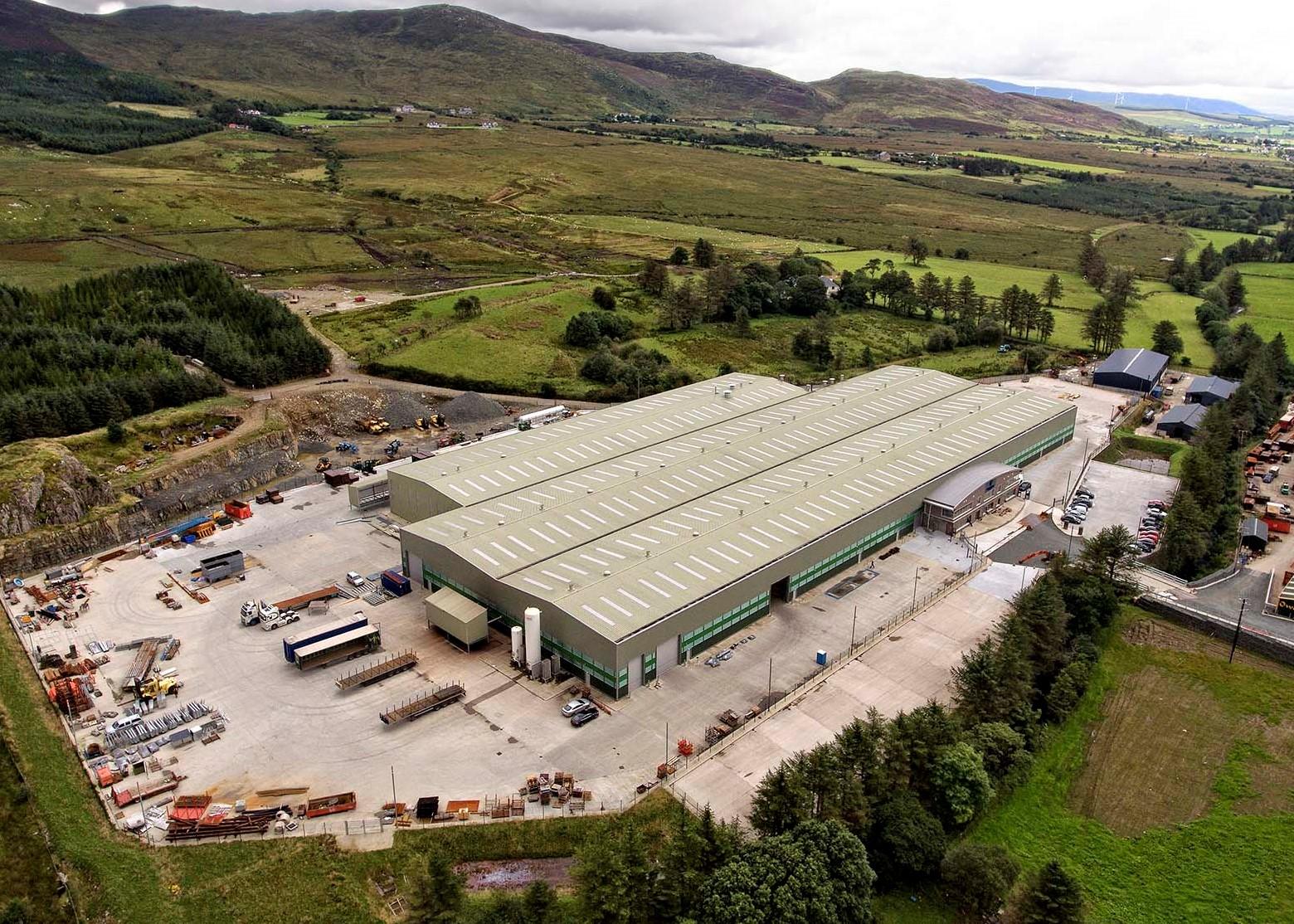
Irish sheet metal and machining specialist Inishowen Engineeering is investing €30 million in expanding its facilities, including setting up a three-machine fibre laser cutting cell.
Inishowen Engineering's owner and managing director Michael McKinney explained, "Underlying this latest round of investment is our diversification from concentrating mainly on the agricultural, quarrying and mining sectors to supplying firms manufacturing materials handling and transportation equipment, including forklifts and multi-purpose tractors.
"Inishowen Engineering's latest €30 million investment allows us to leverage the advantages of high precision combined with competitive pricing and is a clear statement of our intention to become one of the foremost one-stop-shop fabricators in Europe."
The investment centres on a 160,000 sq ft factory extension on Inishowen Engineering's seven-acre site in Drumfries. As part of the expansion programme, which started in April 2017, an extra €19 million has been spent on new machine tools, a pair of robotic welding stations, and new finishing equipment including shot blasting booths, wet and powder painting lines and a nano pretreatment and electrophoretic coating facility.
In addition to the replacement of a CNC tube bender and a plasma cutting machine with more modern plant and the purchase of another large machining centre, other new machines on site include a 12 metre by 2 metre capacity, 6 kW, flat-bed fibre laser cutting centre that arrived in 2018. It joined two 4 metre by 2 metre capacity models of similar power installed in 2015 and 2017. All are BySprint Fiber Laser machines manufactured by Bystronic in Switzerland and supplied by Bystronic UK, Coventry.
On site also from the same source are seven press brakes as well as a machine for CO2 laser cutting tube up to 305 mm diameter by 12,500 mm long. Additionally, during the spring of 2019 Bystronic supplied and installed an automated sheet storage and handling system that continually loads and unloads material to and from the three flat‐bed lasers, reducing the manning requirements on these machines whilst also improving productivity.
Mr McKinney said: "In all of the industries we serve, component parts and assemblies we are asked to produce are becoming larger so that customers can minimise welding when manufacturing their products, hence the need for machines capable of processing 12 metre long sheet and tube."
In the case of the tube laser cutting machine in particular, which was delivered in the second quarter of 2019, he added that this new offering to customers sets the company apart from most subcontractors in Ireland and also in the UK, broadening its capability considerably and preventing work from being lost to competitors with CNC tube processing capacity.
The tube laser can complete in five minutes what might take four hours of manual milling and drilling on different metalcutting machine tools. Moreover, some components cannot be produced at all by conventional means, so OEMs' design departments now have greater design freedom, knowing that more complex parts can be produced and at an economical price.
Mr McKinney concluded: "Smaller firms may struggle to finance the acquisition top-end machines, but only by doing so is it possible to obtain high quality coupled with competitive cost-per-part production.
"Especially when producing assemblies, which accounts for two-thirds of our throughput, accuracy in all areas of machining is essential to avoid time-consuming fit-up difficulties and the same applies in our customers' factories.